
Last week’s hit “AI Stefanie” song took the Chinese music scene by storm. Covers of songs such as “Hair is Like Snow”, “Rainy Day”, “Love in B.C.” and other songs have been played more than 1 million times, and the number of cover songs has exceeded 1 million. It is frequently recommended on the homepage of station B. As the song became popular, the issues behind it were also implicated, triggering extensive discussions among everyone.

How is "AI Stefanie Sun" implemented?
Let’s first talk about a question that everyone is curious about. How is “AI Stefanie Sun” implemented? In more official terms, "AI Stefanie" is an AIGC content product (artificial intelligence generated content) based on a "generative speech model".
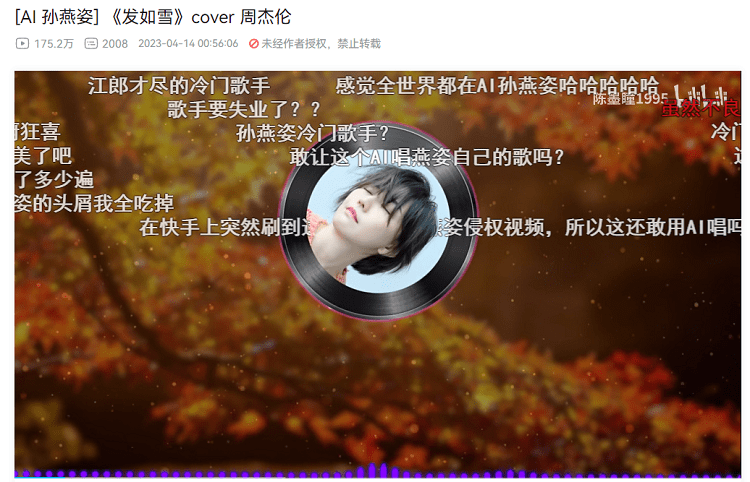
Looking at this explanation, does it feel familiar to you? ChatGPT, which became popular some time ago, defines itself as "a large language model". It is also a model, but one is a speech model and the other is a language model.
Including AI intelligent drawing Midjourney, in fact, these are AIGC content products.
These AIGC content products all follow the same basic rule, which is to "feed" a large amount of data and then obtain corresponding content through AI training. When the more data is "fed", the results obtained will also be is more accurate.
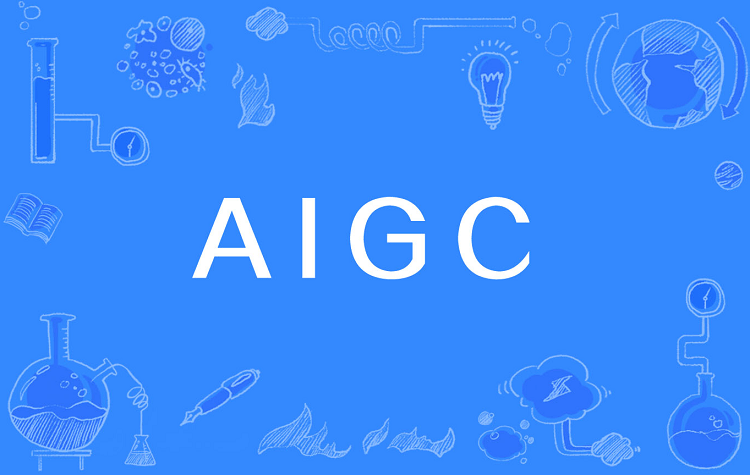
AI Stefanie Sun is realized through the open source generative language training model. It trains collected audio materials such as Stefanie Sun songs, interviews, and live broadcasts, and uses AI technology to extract Stefanie Sun’s timbre characteristics, so as to cover other songs. From a technical point of view, the difficulty is not high, and netizens have shared relevant tutorials on the Internet.
“AI Stefanie Sun” faces the risk of infringement
The popularity of AI Stefanie Sun has aroused heated discussions among netizens on the Internet. After collecting and sorting out the opinions of relevant experts and lawyers on the Internet, it was found that AI Stefanie Sun may have two main legal issues. One is infringement of the rights and interests of the parties involved in the voice, and the voice and Portraits are personal attributes. Using AI technology to synthesize the voices of others may cause harm to the personal rights or property rights of the voice owner.
The second is copyright infringement. The song generated by using "AI Stefanie Sun" itself infringes the copyright of the song, which is illegal in itself. Some creators may also be aware of the infringement and delete the content of the songs they created. Some content creators will also mark the words "for learning and communication only, strictly prohibited for commercial use" to avoid risks.

Compared with AI sound production, the once popular "AI face-changing" brings greater legal risks. Only one or more photos are needed, and the characters in the photos can be transformed through the processing of deep synthesis algorithms. Becoming the protagonist of the video will infringe on the person's portrait rights. There are many legal disputes over portrait rights caused by "AI face-changing".
For example, JJ Lin once sued a Bilibili UP owner and Shanghai Kuanyu Digital Technology Co., Ltd. (the main company of Bilibili) for "AI face-changing videos." The infringing Bilibili video used AI technology to convert the video The character in the video was replaced with JJ Lin's face, infringing on JJ Lin's portrait rights.
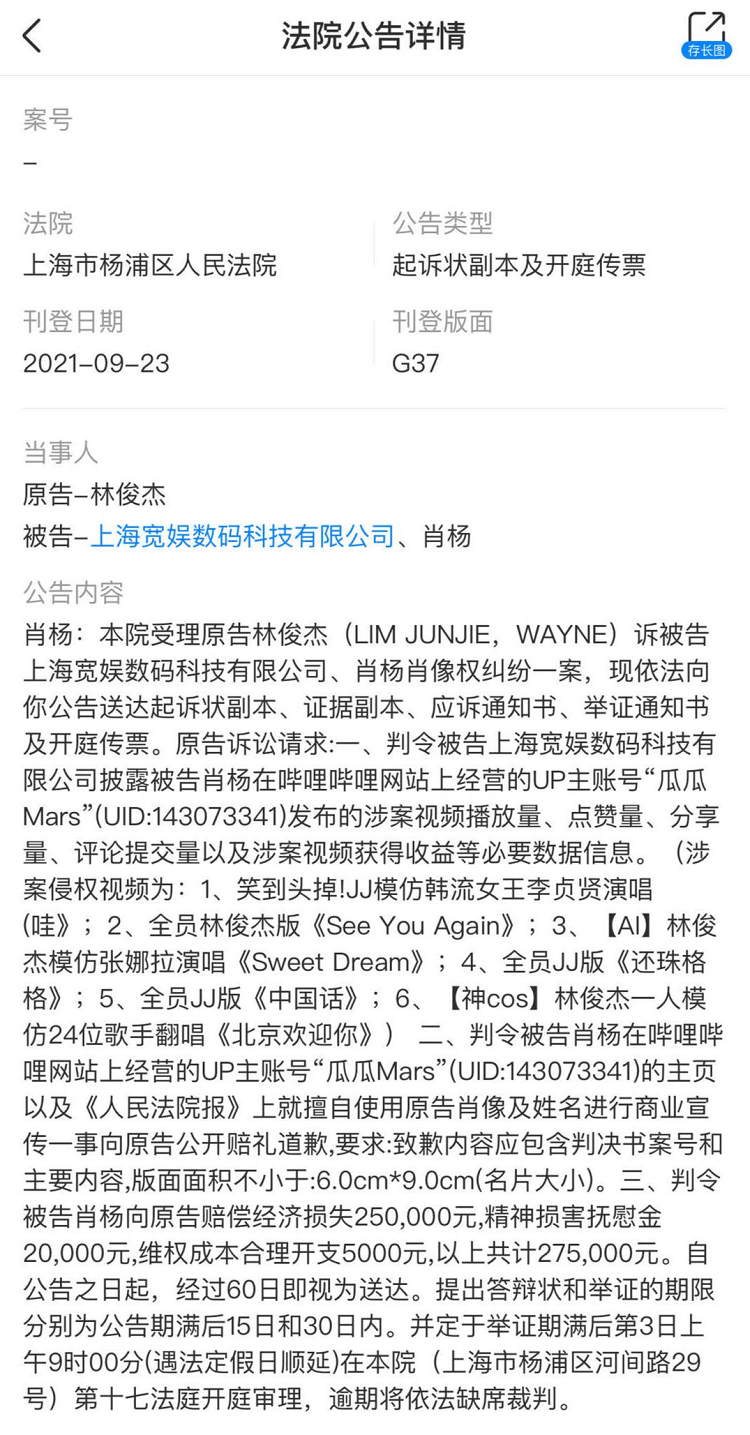
The Hangzhou Court also heard a case in which the "AI Face Changing" APP used deep synthesis algorithms to infringe the portrait rights of others. In the case, the "AI Face Changing" APP claimed that one could become the protagonist of a video with just one photo. One of the videos The template uses an ancient-style video of the person who was violated. The "AI face-changing" APP company uploaded the ancient-style portrait video to the AI face-changing APP it operates without my consent for users to choose and use. It also violated the original video person. image rights.

AIGC relevant regulations are introduced to promote healthy development
Faced with the constantly emerging AIGC content and some problems that may arise. In April this year, the Cyberspace Administration of China issued the "Notice on Public Comments on the "Measures for the Administration of Generative Artificial Intelligence Services (Draft for Comments)". In order to promote the healthy development and standardized application of generative artificial intelligence, generative artificial intelligence Artificial intelligence refers to technology that generates content such as text, pictures, sounds, videos, and codes based on algorithms, models, and rules.
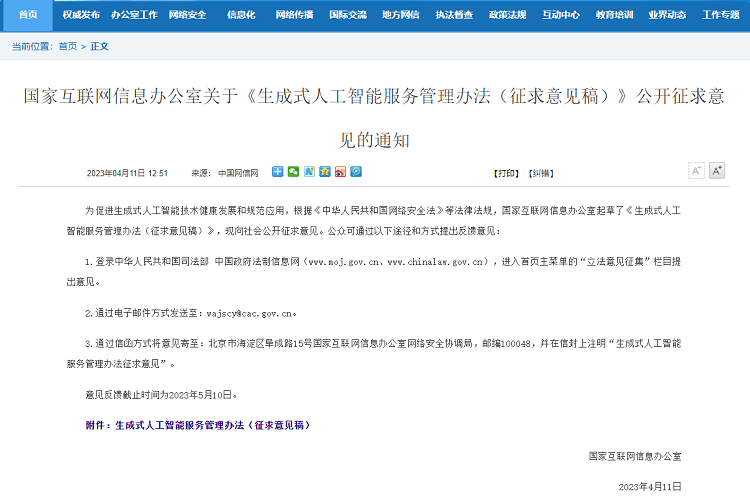
In May of this year, with reference to laws and regulations such as the "Internet Information Services Deep Synthesis Management Regulations", the short video creation platform Douyin also launched platform specifications and industry initiatives on artificial intelligence-generated content, requiring platform ecological participants to follow Relevant specifications. These include prominently marking content generated by artificial intelligence, requiring real-name authentication for virtual human users registered on the platform, and prohibiting the use of generative artificial intelligence technology to create and publish infringing content, including but not limited to portrait rights, intellectual property rights, etc.
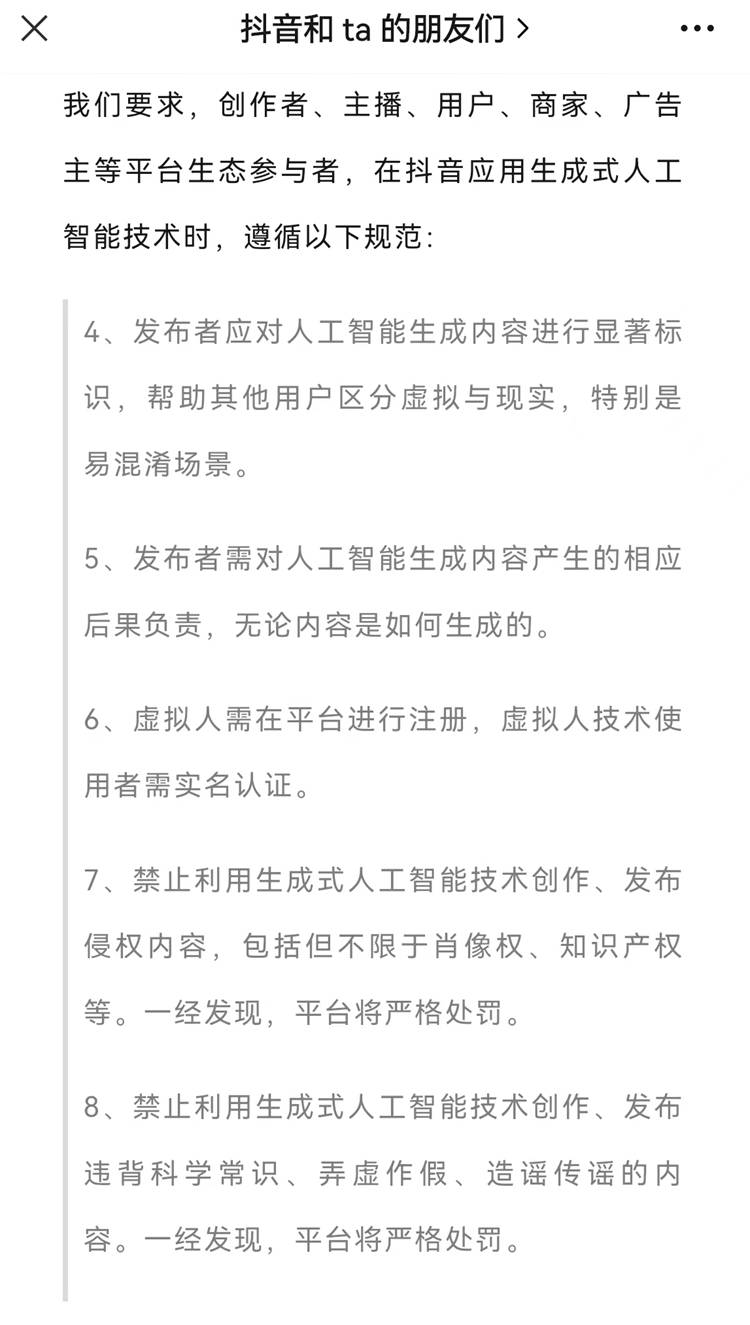
In addition to our country, other foreign countries are also actively participating in AI legislation. Recently, the Internal Market Committee and the Civil Liberties Committee of the European Parliament passed the negotiation authorization draft of the Artificial Intelligence Act proposal. The National Institute of Standards and Technology in the United States also released the Artificial Intelligence Risk Management Framework in January this year. AI legislation is the general trend and It's urgent.
The birth of generative artificial intelligence technology itself is a good thing. It can be used to assist humans to complete more things with high efficiency. It has unlimited development possibilities. It is a new tool with epoch-making significance. The key is How can users make good use of this emerging tool? After all, oranges grow in Huainan, and oranges grow in Huaibei, and oranges grow in Huaibei. Legislation can guide the development of artificial intelligence in the right direction and avoid possible risks in its development, while not hindering the emergence of more new technologies.
The above is the detailed content of The popular 'AI Stefanie Sun' has a series of legal issues behind it. For more information, please follow other related articles on the PHP Chinese website!




